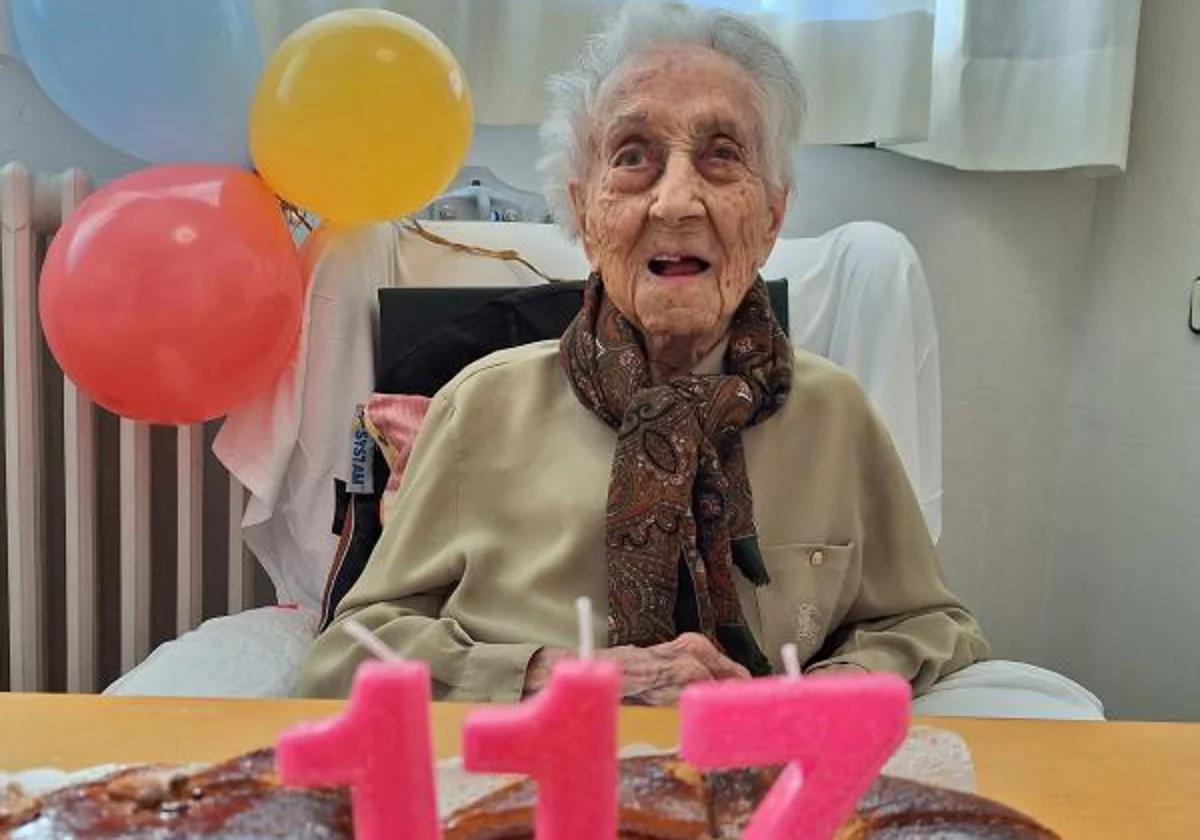Study reveals key factors that led to oldest Spanish woman in the world living to 117 years of age
The genetic analysis of this exceptional woman represents the "most exhaustive and complete" research ever carried out on a supercentenarian (people aged 110 or older)
Alexia Columba Jerez
Madrid
Tuesday, 8 April 2025, 17:23
Few can say they have witnessed and lived through a century of history, but that was the case for María Branyas Morera, the Spaniard who died in good health at the age of 117.
She gained first-hand experience of two world wars and maintained her get-up-and-go well into her 100th year. From 17 January 2023 until her death on 19 August 2024, she was the world's longest-lived person on record. For scientists this meant that she was a fascinating case study. Even Branyas herself would say: "Study me." And now a study led by the prestigious geneticist Manel Esteller has attempted to unveil the secrets that differentiated Branyas from the rest of the population and thus discover the key to her longevity.
Who was Maria Branyas?
This supercentenarian woman, as people over 110 are called, was born in the United States in 1907, in San Francisco. Her mother was Catalan and her father was from Pamplona. She later moved to Catalonia when she was eight years old. Her remarkable life journey was free of serious illnesses or the ailments that typically beset those of advanced age. Furthermore, she maintained a lucid mind well past the age of 100. Branyas is actually a pretty rare bird, considering that, in Barcelona, the average life expectancy for women is 86 years.
With enviable health and 13 great-grandchildren, those who knew her agree that she had a positive outlook on life. "One day, unknown to me but very near, this long journey will be over. Death will find me worn out from having lived so much, but I want it to find me smiling, free and satisfied," Branyas said, according to a message on social media left by her family.
Towards the end of her life she agreed to undergo numerous medical tests in an attempt to solve the great mystery of her longevity. It was a team of researchers from the Josep Carreras Leukaemia Research Institute and the University of Barcelona who set to work. Their results, although pending peer review, give us an insight of what can be considered healthy ageing.
The secret of this supercentenarian
Among other things, this research highlights that Branyas' gut microbiota were similar to those of a child, and she had genes that protected her from cardiovascular disease as well as dementia and the risk of cancer. Esteller explained to the media that the gut microbiota are where the immune system learns what it needs to do to protect the body and then it can take any required action throughout the body.
Excited to share our #multiomics study of who was the world's #oldest living person! Our research on this record-breaking #supercentenarian suggests that, under certain conditions, #aging and #disease can become decoupled—challenging the common belief that they are inherently… pic.twitter.com/NcTgnyvFNn
— Manel Esteller (@ManelEsteller) February 25, 2025
Another advantage of Branyas was that her genome (the complete set of DNA genetic material in an organism) made her cells "feel" and "behave" like younger cells, some 17 years younger than their chronological age. Esteller, in an interview with National Geographic, explained that her metabolism was also highly efficient. Add to that her low levels of bad cholesterol and high levels of good cholesterol. "In addition, she maintained low levels of inflammation, which protected her against multiple health problems. And from pathological diseases such as diabetes."
"What this study has shown, for the first time, is that the biological mechanisms that determine long life are not the same as those that cause age-related diseases. In other words, ageing and the diseases associated with old age do not necessarily go hand in hand and, under certain conditions, these processes can be separated," said Esteller.
All this was complemented by a very ordered lifestyle, a Mediterranean diet including three yoghurts a day. Moreover, she did not drink, did not smoke and took regular walks. Living in an area without extremes of temperature and being accompanied by her family also benefited her health. Branyas attributed her longevity to "luck and genetics", contact with nature and the emotional stability that kept her from having toxic people around her.
As Esteller himself acknowledged, the genetic study of this exceptional woman is the "most exhaustive and complete" research ever carried out on a supercentenarian. Therefore, it is tremendously useful for developing anti-ageing drugs and for studying how they work and a hot topic in recent years that sees people like Branyas as the Holy Grail of longevity.
